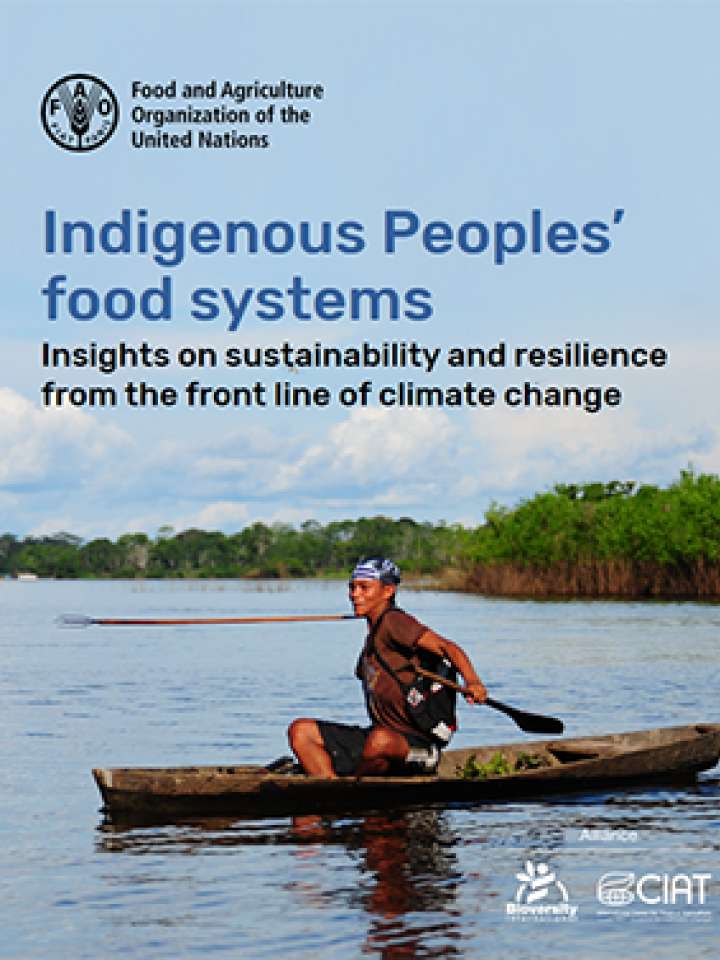Indigenous Peoples’ food systems
This publication provides an overview of the common and unique sustainability elements of Indigenous Peoples' food systems, in terms of natural resource management, access to the market, diet diversity, indigenous peoples’ governance systems, and links to traditional knowledge and indigenous languages. While enhancing the learning on Indigenous Peoples food systems, it will raise awareness on the need to enhance the protection of Indigenous Peoples' food systems as a source of livelihood for the 476 million indigenous inhabitants in the world, while contributing to the Zero Hunger Goal.
This publication also discusses how climate change and natural disasters are negatively impacting Indigenous Peoples and their food systems. Indigenous Peoples’ food systems are increasingly vulnerable to the amplifying realities of climate change. Historically, their food systems were resilient by aligning with the cycles of natural resources. As these cycles are disrupted by climate change, so too are their food systems and food security. Furthermore, seasonal eating habits were a strength of their food systems and nutritionally diverse diets. Now such habits pose potential risks as the variability in weather patterns affects the seasonal cycles and availability of food sources.
In addition, the UN Decade of Action on Nutrition (2016-2025) and the UN Food Systems Summit call on the enhancement of sustainable food systems and on the importance of diversifying diets with nutritious foods, while broadening the existing food base and preserving biodiversity. This is a feature characteristic of Indigenous Peoples' food systems since hundreds of years, which can provide answers to the current debate on sustainable food systems and resilience.
Explore further
